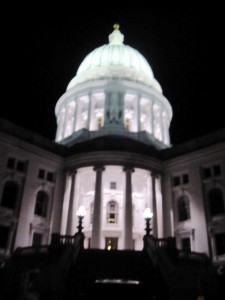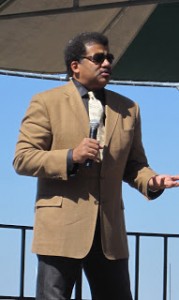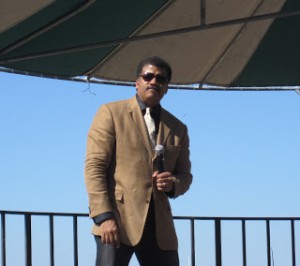Not that I expect anyone to want to take the 20 minutes to watch a video that is essentially just me talking, but I recorded this interview about tips for bloggers who are just starting out so I thought I’d share it here. This was done as a prelude to a guest lecture that I gave in a Life Science Communication class at the University of Wisconsin-Madison. The students asked some great questions, that I figured were also worth answering here on the blog. If you have questions about getting started as a blogger or want to add some wisdom (please, do!) definitely let me know in the comments.
Questions from the class:
Has your strategy for promoting and writing the blog changed since getting a full-time job?
Absolutely, I have less time to maintain the blog than I did when I was in school, so I have to be more strategic about what I do. I’m down to writing one post a week and I spend a lot more time on Twitter.
How do you find and pick which topics to write about?
For a more detailed answer about this one, you can check out
Filling the Empty Page: Reading to Write where I talk more about how I get story ideas from the things that I read, and how important it is to write about what genuinely interests you.
If there is one thing you could have done differently what would it be?
I would have (and still should) comment more on other blog posts. This is a case of not practicing what I preach, I’m well aware of the benefits of commenting and getting involved in other forums, I just don’t do it nearly as often as I should.
Is there a certain way you suggest commenting? As in: ask questions, critique, converse, praise, etc.
Comment however you want to, just make sure you are saying something that contributes to the conversation in some way.
How do you make yourself seem credible when writing about a serious matter?
If you check your facts, use the right sources, and are thoughtful and dedicated to getting the post correct then you are credible. People will see that.
Are you using other social media sites besides Twitter to grow your blogging audience?
I just started using Google+ more, I’m intrigued to see what comes of it.
Any advice in finding your blogging voice?
Blog a lot. When I first started Science Decoded, I wrote a lot more than I do now. You need to try it out, try different kinds of posts, explore different topics and eventually you’ll figure out what feels right to you. Give yourself time to develop your voice, you aren’t going to have everything exactly how you want it right out of the gate.
Any tips for reaching out to influential stakeholders, it seems intimidating.
If tweeting or commenting to someone well established in your field, I think the best advice I can give is to just go for it – but have something of substance to say. If it really makes you uncomfortable, practice interacting with people you consider your peers first to get a better sense for how it all works.
After you established a professional blog did you ever find yourself posting off topic of your specific aim because it was just so interesting you had to share it?
Absolutely. I kept Science Decoded fairly open ended in the first place because I knew I wanted the ability to write blog posts about a variety of topics. Even so, I’ve written posts that haven’t been related to science like when I went on a rant about supporting philanthropic causes or explained my fascination with Amelia Earhart. In my opinion, you can go off topic once in a while and you shouldn’t have a problem.
How do you keep your ideas confined to a tweet?
Tweeting short hand is tricky, it takes practice to instinctively distill ideas into a tweet but you’ll get the hang of it.
What aspect of your writing has improved most over the years? (being concise, structure, etc.)
I would say the thing about my writing that has improved most since I started blogging is the ease with which I write in my own style. Like I said in answer to another question, your voice develops and becoming comfortable with my own voice is I think the best take-away from blogging.
If you have any tips of your own, or if you have any other questions you’d like me to try to answer leave it in the comments!



